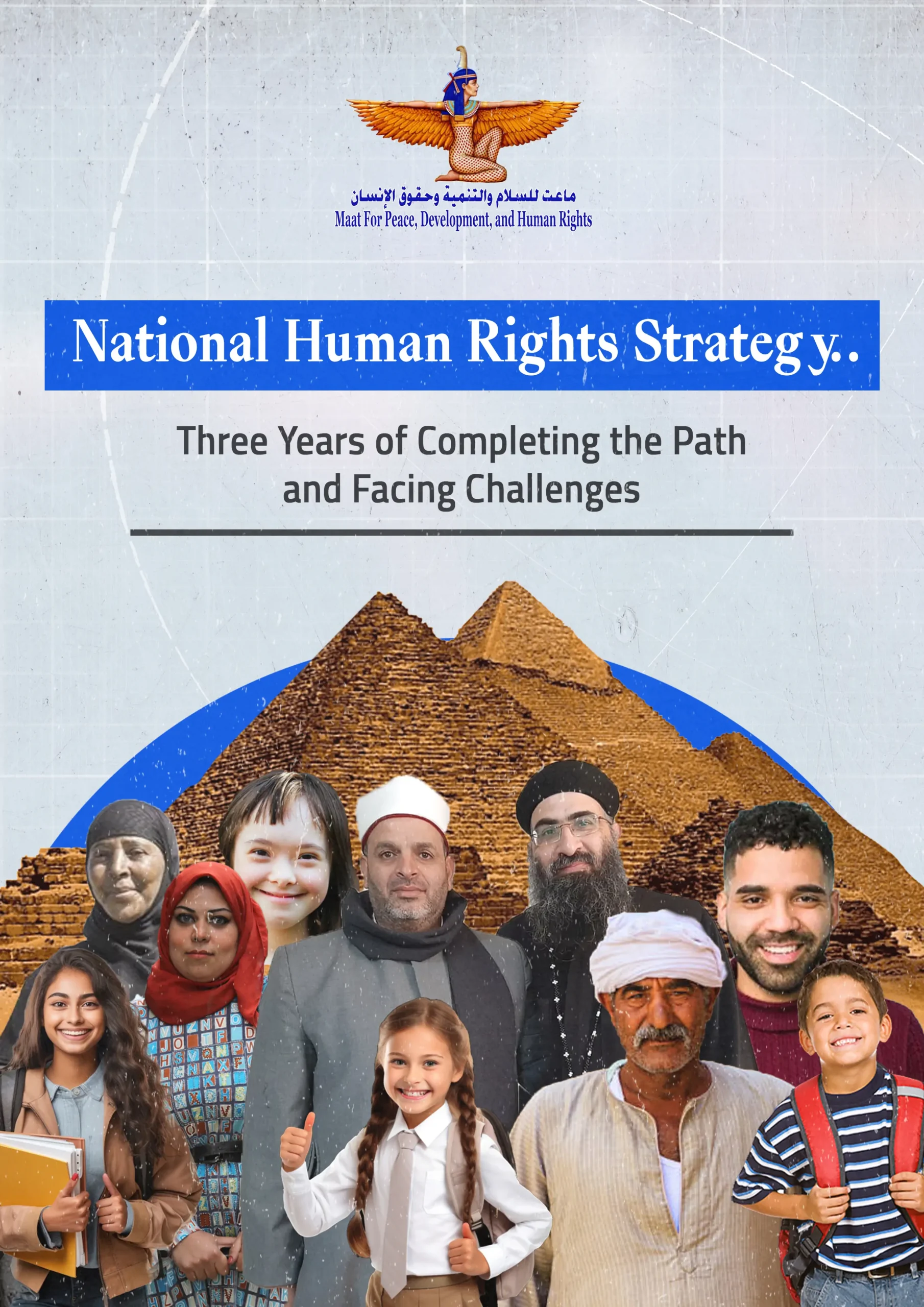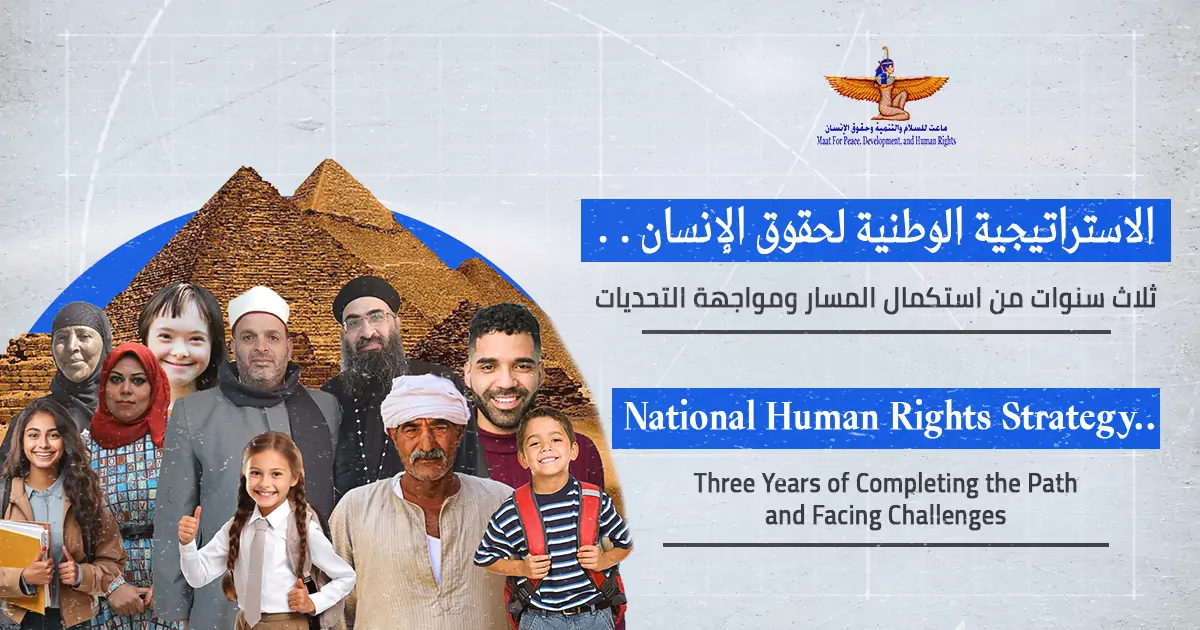Three YEARS AFTER ITS Launch, Maat Issues Its Third Report to Follow up on Implementation of National Human Rights Strategy
Okeil: Implementing remaining goals of Strategy requires more coordination between Supreme Committee and other stakeholders
Three years passed, since President Abdel Fattah El-Sisi launched National Human Rights Strategy which was launched on September 11, 2021, President Abdel Fattah El-Sisi launched National Human Rights Strategy as a comprehensive plan for the state to improve the human rights situation in Egypt across various dimensions. During the strategy's launch conference, the President emphasized the necessity of a partnership approach involving the government, civil society, and specialized national councils. In this context, Maat for Peace, Development, and Human Rights, as a civil society organization capable of monitoring national strategies and action plans, issued its third report titled “National Human Rights Strategy: Three Years of Progress and Challenges.” This report aims to assess the implementation of Strategy goals and objectives, identify challenges hindering progress, and provide recommendations to encourage stakeholders to intensify efforts towards achieving the remaining goals, thus completing the journey toward the desired outcomes of the strategy.
The report utilized an evaluation tool to assess progress toward the 226 targeted results outlined in the strategy. The evaluation categories were defined as follows: “implemented” indicates a high level of government achievement; “work in progress/close to being achieved” denotes results that have begun but are not yet fully realized; and “not started” signifies areas where no action has been taken. The findings revealed that approximately 11% of the targeted results have been fully implemented, while 62.4% are in progress. Meanwhile, 26.6% of the results have yet to be addressed, highlighting the need to accelerate efforts to implement these remaining outcomes within the strategy's timeframe.
The report emphasized that the third year since Strategy launch witnessed significant positive developments, including the near completion of the draft Criminal Procedures Law, which aims to achieve several key results. Various ministries have also continued to establish human rights units. However, the report identified the lack of an executive action plan as the primary challenge to effective Strategy implementation. Therefore, it recommended the urgent approval of an executive action plan that delineates the roles of each party involved in achieving the targeted results, along with clear timelines for completion, to ensure Strategy's successful implementation before the end of its initial phase.
In this context, legal expert and Chairman of Maat, Ayman Okeil, stated that the National Human Rights Strategy marks a significant turning point in the state’s approach to human rights in its comprehensive sense. Implementing its results necessitates coordinated efforts among all responsible parties. Okeil emphasized that achieving the targeted results outlined in National Human Rights Strategy may be more feasible through a collective and collaborative approach. Engaging stakeholders in consultations can accelerate the implementation of the remaining results and effectively address any challenges that arise at all levels. Ensuring the active participation of civil society in the execution of Strategy outcomes can add significant value and make the achievement of these outcomes more attainable.
Okeil further explained that it is essential to enhance coordination between the Permanent Supreme Committee for Human Rights and other stakeholders to facilitate the implementation of the Strategy and to propose an executive action plan. He stressed the need to develop this executive action plan and establish a coordination mechanism with stakeholders to discuss the targeted outcomes that have yet to be addressed.

 |
 |
shortlink: https://maatpeace.org/en/?p=43246












